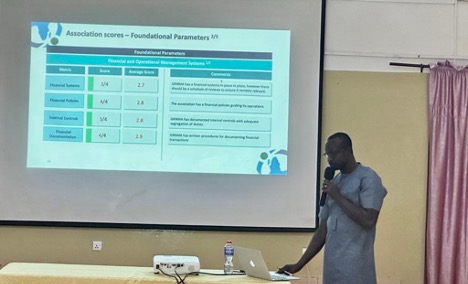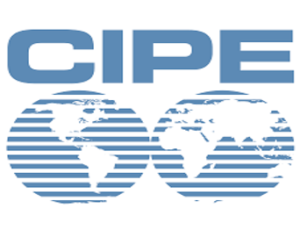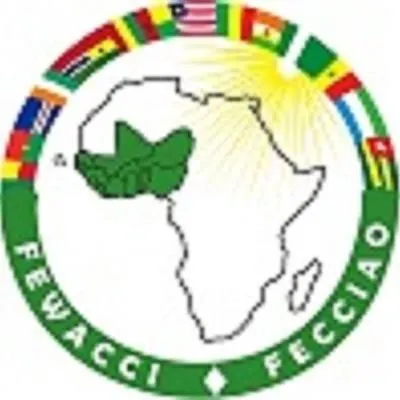Private Sector Associations Commit to Developing Operational and Financial Management Capacities Leveraging the Proposed USAID-funded CLOSA Project Learning Sessions
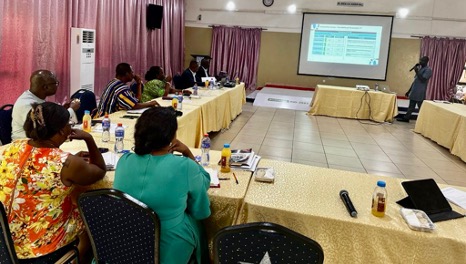

In June, ten (10) selected private sector associations (PSAs) in Ghana sat down with the Country Engagement Manager for CLOSA to review their financial management assessment (FMA) results. After the debrief sessions, the PSAs agreed with the findings and demonstrated enthusiasm and readiness to challenge the status quo by developing their operational and financial management capacities leveraging support from the CLOSA project.
Prior to these debrief sessions, the Health Strategy and Delivery Foundation (HSDF), developed and deployed a financial management assessment (FMA) toolkit to assess the current performance of PSAs across Ghana, Nigeria and Senegal with a focus on five (5) main pillars shown below:
FMA Framework: PSA Performance Parameters
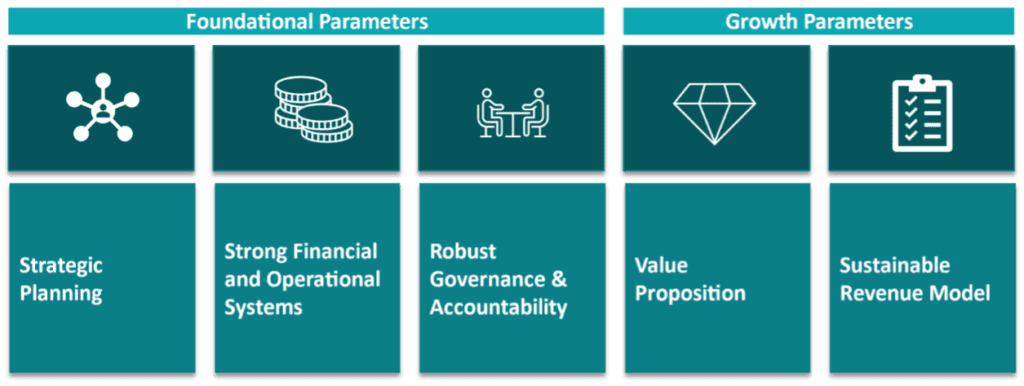

The objectives of the assessment were to:
- Understand the key practices within the private sector associations across focus sectors and countries;
- Understand the underlying challenges; and
- Utilize the findings to develop tailored remedial actions that, when implemented collaboratively with the PSAs, could improve their operations and enable them to achieve financial sustainability.
Some key findings from the financial management assessments in Ghana include:
Insights on Foundational Parameters
Financial and Operational Systems
The findings revealed that all the PSAs had documented financial policies and procedures, while only 18 percent had mastered the basic budgeting process, aligning their budgets to strategic plans. 81 percent of PSAs had little or no documented internal controls and balances. Initial results signify room for improvement across both metrics, which are key development objectives of the CLOSA project.
Governance and Accountability
All PSAs included within the FMA were legally registered with the Registrar General’s Department and were aware of their tax status. 72 percent of the associations fully complied with tax obligations and labor laws as well as statutory audits and reporting requirements, while 27 percent occasionally complied with the identified laws and reporting requirements. Additionally, although the PSAs were aware of their tax status, local labour laws as well as statutory audit and reporting requirements, they were not compliant. 45 percent had documented operational policies and procedures, 63 percent had documented most of their travel policies compliant to donor requirement, less than 50 percent of the association had comprehensive personnel policies.
Insights on Growth Parameters
Value Proposition
With respect to commercial viability, 9 percent of the PSAs were not viable. 64 percent were moderately viable while 27 percent were highly viable with a large membership size and a clear description of the association’s value proposition to attract and retain new members. These associations offered a wide range of services to their members that are peculiar to their needs. They also organized forum engagements for interaction with members, which enabled them to collect membership fees that adequately covered association’s operational and program costs.
Sustainable Revenue Model
Over 63 percent of PSAs had no business plan, documented funding strategies, estimated future resource needs, and had taken no steps in identifying additional strategic partnerships – locally or internationally. However, 27 percent of PSAs had some form of plan based on the analysis of their operations, thus they had been successful in bidding for resources from one or more sources with sufficient funds to support its activities and programs. Additionally, less than 10 percent of the PSA assessed were financially sustainable, and more than 50 percent were not sustainable even though they performed well in other indicators. This disparity is a pointer to the opportunities for improvement to shift PSA toward becoming more financially sustainable.
In his assessment of the overall feedback on the FMA during the debrief session, the president of the Federation of Associations of Ghanian Exporters (FAGE), (Davies Narh Korboe) stated:
“I think the results of the assessment shared with us represent a true and fair picture of the current state of the federation and pave the way for the needed interventions by CLOSA to help FAGE become more financially sustainable and to be equipped to deliver on its mandate.”
Reflecting on the lessons learned from the debrief sessions, the HSDF Country Engagement Manager for Ghana said:
“Generally, the sessions highlighted specific areas within the associations that require attention from the CLOSA project to enhance their financial performance. For me, the overarching lesson includes the importance of offering tailored solutions, as there are no silver bullet solutions for all associations; and fostering engagement and collaboration with the PSAs to co-create customized solutions that will ensure ownership and sustainability. Furthermore, the insights gained from the FMA debrief sessions will provide learning opportunities for the PSAs seeking to improve their operational and financial performance.
In her remarks on the overall success of the FMA debrief sessions, the CLOSA Project Director at HSDF stated:
“We are delighted to have completed the FMA debrief sessions in Ghana. The level of engagement of the selected PSAs during this exercise is also very commendable. More importantly, the insights gleaned from these assessments will help tailor our proposed solutions for enhancing the financial management capacities of these associations, which will in turn foster the development of a vibrant private sector ecosystem in West Africa.”
In conclusion, the completion of the FMA and debrief sessions marks an important milestone in the CLOSA project and lessons learned from these sessions will undoubtedly contribute to the long-term success and resilience of associations within the CLOSA network.
Next Steps
Going forward, the PSAs within the CLOSA network are expected to sign commitment letters as well as participate in the upcoming learning events across Ghana, Nigeria and Senegal. These learning series will be fully funded by USAID Local Works and are designed to help address some of the challenges identified across all these countries with the goal of improving the commercial viability and financial sustainability of the associations.
For more information about the USAID-funded CLOSA project, please visit the CLOSA website www.hsdf.org.ng/closa or email us at closa@hsdf.org.ng
